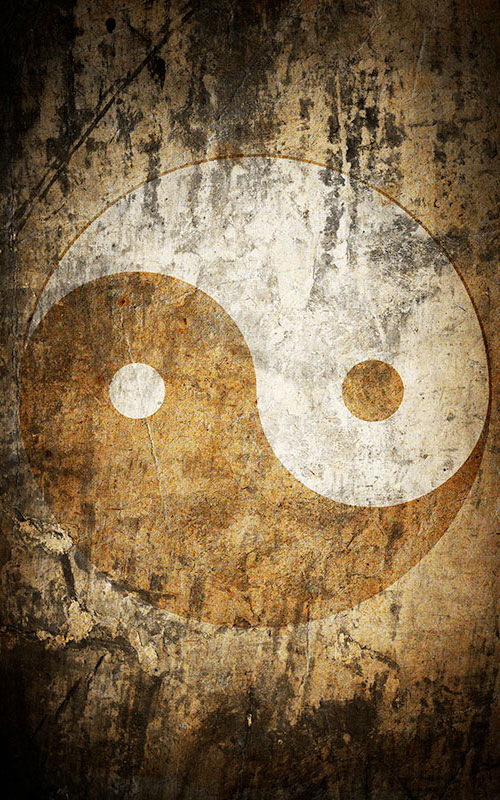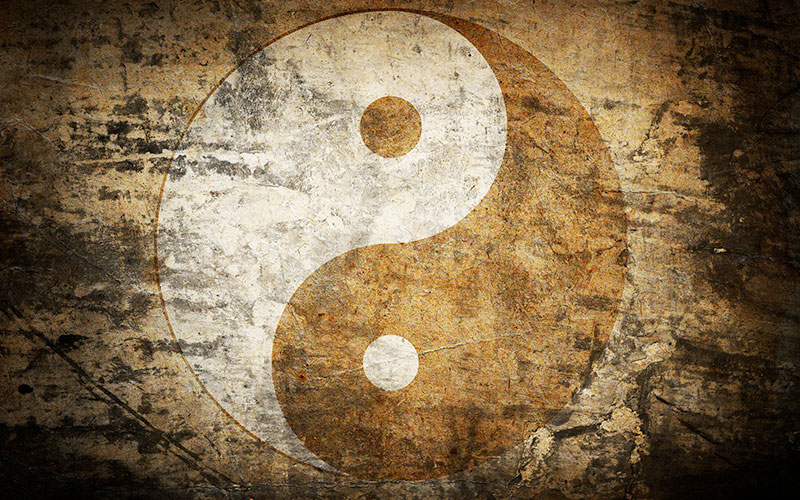Tao Te Ching


“The undiscovered vein within us is a living part of the psyche: classical Chinese philosophy named this the interior way “Tao”, and likens it to a flow of water that moves irresistibly towards its goal. To rest in Tao fulfillment, wholeness, one’s destination reached, one’s mission done, the beginning, end, and perfect realisation of the meaning of existence innate in all things”.
C.G.Jung: Collected Works, The Development of Personality
Cy Grant made his paraphrase of the Tao Te Ching by comparing all the translations he could find and meditating on them through the years since he made his acclaimed broadcast [21 of the 81 ‘chapters’] for the BBC World Service in 1980.
I believe that we have to leave our academic, scientific training behind when we approach the mystery of the Tao. We tend to want to analyse and look at knowledge, what is, in a Western ‘objective’, scientific and discursive way (a construct of materialist dialectics) which immediately separates us from the nature of Tao.
The ultimate answers to existence are not to be found in intellectual, scientific or philosophical concepts but rather on a level of direct non-conceptual experience. We should no longer confuse the indivisible nature of reality with conceptual categories of language. The meaning of the language of the Tao Te Ching can only adequately convey the meaning if related to personal experience, i.e., experiential self-exploration.
The very first lines of the Tao Te Ching states that “The Tao that can be spoken is not the Eternal Tao” meaning that the Tao cannot be caught by words.One cannot discuss it in ordinary language; it is ineffable; it can only be experienced. That is the paradox. The Tao is impersonal yet can only be known by personal by personal experience. One could but try to live it and be in a state of complete nowness, one with the primordial wisdom. Very few can attain this state, so who would dare expound it? One can but meditate on its precepts: reconciliation of opposites, non-duality, non- attachment, without desire for accumulating material things.
There have been many versions and interpretations of the Tao Te Ching. Writers have attempted to capture for instance the Tao of relationships, of leadership, of power and the ‘way’ of life. It has been translated by many scholars, including Robert G. Henricks, Arthur Waley, Paul Carus, Gia Fu Feng, D.C Lau, Michael Lafargue, Tam Gibbs & Man-jan Cheng, Chu Ta-Kao, Richard Wilhelm, and Jacob Needleman. Recently there has been a beautifully illustrated version by Man-Ho Kwok, Martin Palmer & Jay Ramsay and the excellent rendition by Ursula Le Guin.
As well as the many English versions, the Tao has been translated into practically every other language. It may be that no book has been so translated, paraphrased, and interpreted, its many versions deriving from the insights and scholarship of each translator. The Tao accommodates them all as it embraces all things, resolves all polarities – a difficult concept perhaps for the West to accommodate, locked as it is in a paradigm of separation and division. The ancient text itself has been clouded in obscurity and although now credited to one Lao Tzu, there has been uncertainty about the authenticity of some versions of the text – the order in which sections were placed and juxtaposition and omission of lines and verses- as well as discovery of lost portions of the original.
The greatest difficulty in translation emerges from the idiogramic nature of Chinese writing itself, its hieroglyphs or pictograms, allowing for a certain degree of abstraction whilst addressing themselves to the fundamental questions of existence, the nature of reality and the mystery of creation, all of which are beyond description. I must confess that I do not speak Chinese. I made my paraphrase by comparing all the translations I could find and meditating on them. I found that all of the many translations of this classic differ greatly from each other, mostly, I presumed, because the Chinese who translated them may have had a limited understanding of English or that the English scholars who made their translations found the concepts difficult to comprehend.
Cy Grant’s version of the Tao Te Ching
Comparison of translations of Chapter 17
the first three by Chinese scholars
The best of all rulers is but a shadowy presence to his subjects.
Next comes the ruler they love and praise;
Next comes one they fear;
Next come one with whom they take liberties.
When there is not enough faith, there is a lack of good faith.
Hesitant, he does not utter words lightly.
When his task is accomplished and his work is done
The people all say, ‘It happened to us naturally.’
D.C.Lau
The great rulers – the people do not notice their existence;
The lesser ones – they they attach to and praise them;
The still lesser ones – they fear them;
The still lesser ones – they despise them.
For where faith is lacking,
It cannot be met by faith.
Now how much importance must be attributed to words!
Ch’u Ta-Kao
The very highest is barely known by men
Then comes that which they know and love
Then that which is feared,
Then that which is despised.
When actions are performed
Without unnecessary speech,
People say “We did it!”
Gia-Fu Feng
When there are truly great rulers
The populace is unaware that they are ruled;
Less great rulers may be beloved and revered;
Lesser ones feared;
And then there are those who are despised.
Unless there is trust, one will not be trusted.
What is more important? Words or deeds?
A task effortlessly completed
Seems to have happened naturally
Cy Grant

For me the importance of the Tao Te Ching, lies not only in the deep philosophical truths it contains but in the innate poetry of the text. Elusive and paradoxical, mysterious and challenging, no one version captures the poetry, yet in their totality, the many versions convey the esoteric wisdom inherently linked to how we should envision a decent world for all of humanity.
Discovering the Tao is about discovering what is intrinsically good about human existence and how to share it with others; that there is a vast, unchanging primordial wisdom that supports all life – a sanctity that is never tarnished or diminished by the confusion that bedevils the phenomenal world e.g., the materialistic construct of the prevailing world view , nationalistic hubris, alienation from the natural sustaining environment threatening ecological disaster for our planet, economic embargoes and warfare, racism and unconcern for the poverty and suffering of the majority of mankind, It is a wisdom that predates everything in existence.
Something mysteriously formed
existing before heaven and earth.
silent and void..
it stands alone,unchanging… pervading all..
Is this the Mother of all things?
I do not know its name..
I shall call it TAO..
for lack of a better word
I call it great;
being great, it flows…
because it flows, it is far away;
being far away, it come back again…
The Way is great
Heaven is great
Earth is great.
Man follows the laws of the earth
Earth follows the laws of Heaven
Heaven follows the laws of TAO
TAO
Follows Its own nature
